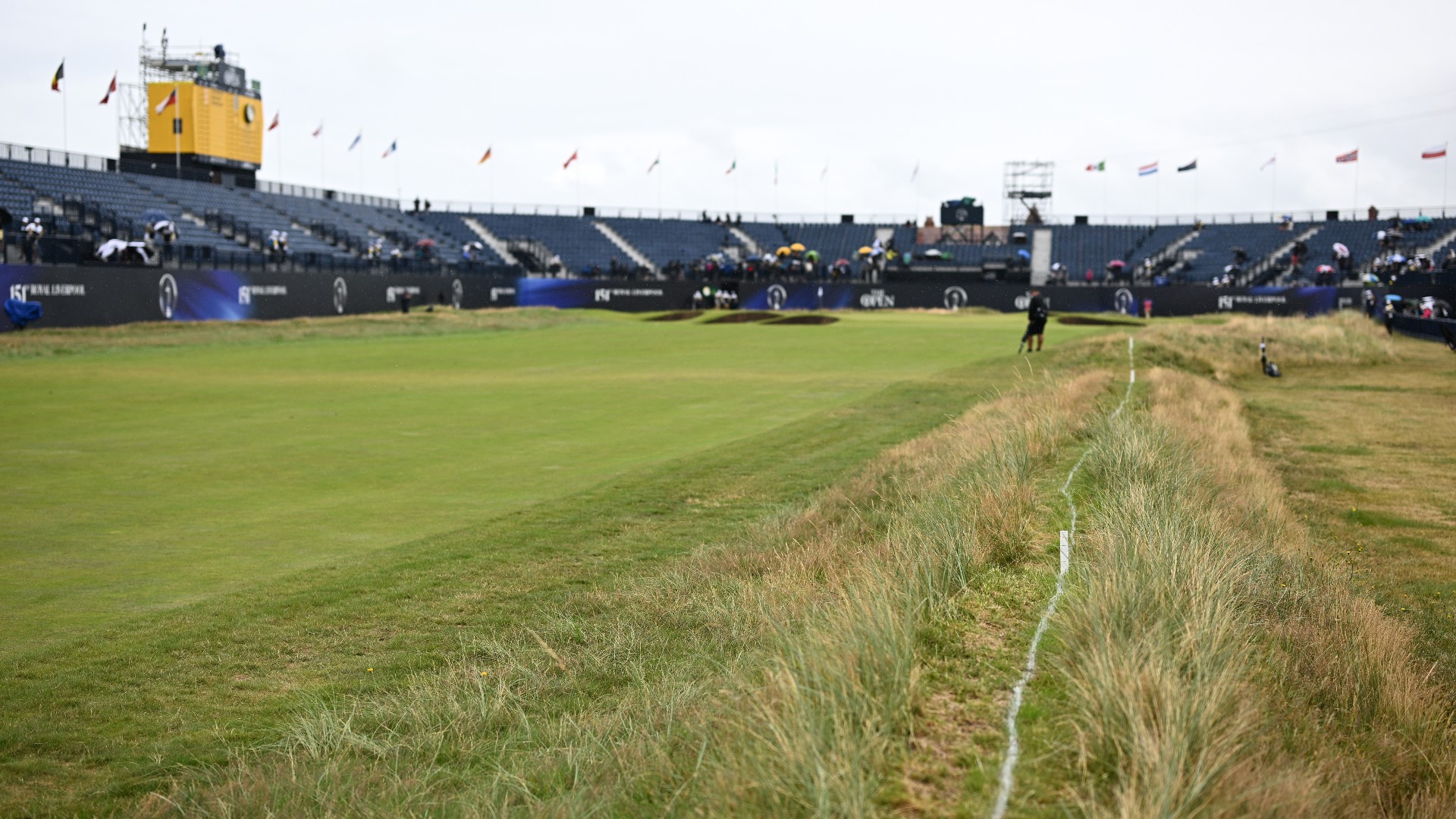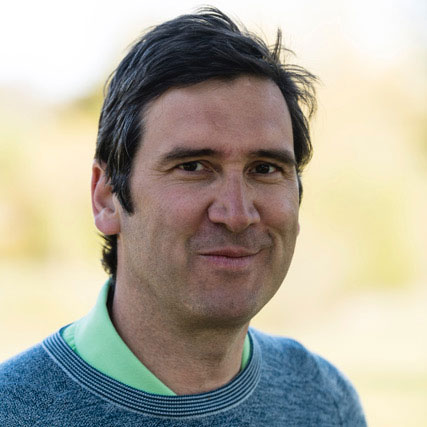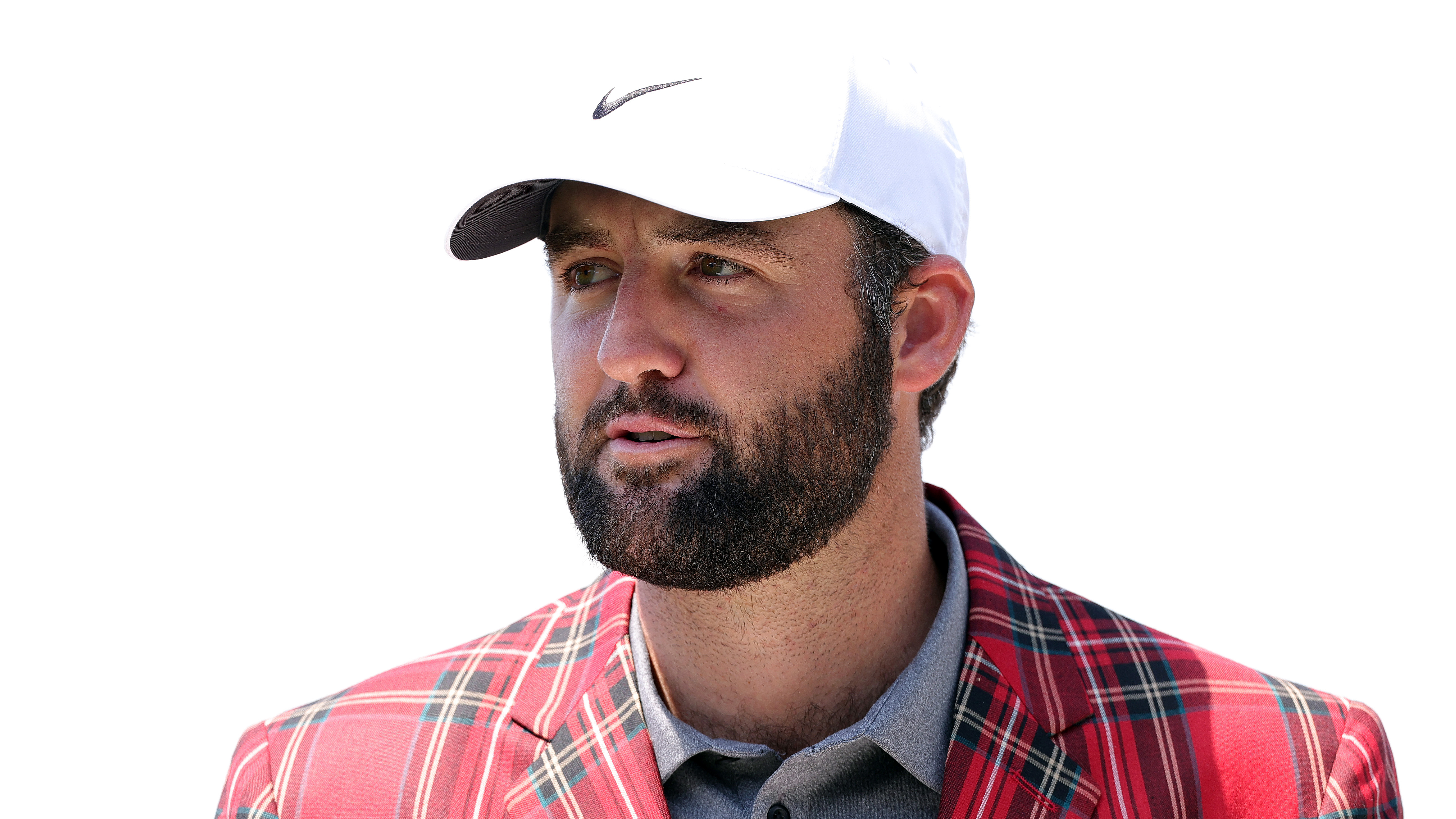How Internal Out Of Bounds Could Shape The 151st Open
This year we have two holes where internal out of bounds lurks and it could provide a dramatic finale come Sunday evening


Internal out of bounds is generally considered about as popular as slow play in the game. The consensus is that it’s unnecessary and occasionally a bit of a gimmick and only belongs on lesser courses where holes run up and down alongside each other.
Four years ago it was the story of day one as the prospect of a home-town winner in Rory McIlroy evaporated in just one shot, his opening tee shot finishing a couple of yards the wrong side of a single white line with McIlroy minutes away from an opening eight.
This time around we have to wait until the 3rd hole before the opportunity for a very quick re-load arises. Here the out of bounds separates the course from the club’s practice ground and which, this week, will be decorated by hospitality and merchandise tents. In a former life it was a horse-racing track with the rails forming its boundary.
The tee shot here is most likely a long iron, maybe some sort of wood, played to the corner of the left-to-right dogleg. In 2014 supposedly only two players hit driver, Darren Clarke and Tom Watson, with the likelihood being that they weren’t taking on the corner. In the 2006 Open Robert Rock repeatedly hit driver but deliberately down the left-hand side where he knew that if he tugged it a bit, there would be a free drop from the then media centre.
When asked Brooks Koepka wasn’t overly bothered by the thought of leaking one right, either off the tee or with the approach. The reality is that you are more likely to be re-loading with the second shot, which will be played from around 180-220 yards, and that it will have been either a big push right or something near the hosel.
“We don't really play too many golf courses that have it. I think at the PGA (at Oak Hill) they had it on 6 - couldn't go down 7. Obviously one here on 3 and I guess 18. It's fine. Just don't hit it over there you won't have a problem, right?
"The wind is off the left and the pin is on the right. I'm going to make sure that I miss that left, considering there's internal OB on the right. Just picking a good target and sticking with it and being committed,” explained the five-time Major winner.
Get the Golf Monthly Newsletter
Subscribe to the Golf Monthly newsletter to stay up to date with all the latest tour news, equipment news, reviews, head-to-heads and buyer’s guides from our team of experienced experts.
“It might be 45, 60 feet left of the flag, where if you're just watching it might not be a great shot, or if you don't know much about the situation. But to us or to me, it's a really good shot and right where it needs to be.”
The real beauty of this hole is that it normally plays as the 1st hole for the members who play a more forward tee and will more likely have a driver in their hands.
We have to wait until the 18th before we revisit the same parcel of land from the other direction. Here, because of the new 17th hole, the 18th tee has been extended and moved to bring the white stakes more into view and range.

“A remarkably intimidating opening stroke now awaits, as the Championship tee has been moved back around 50 yards and significantly further right, while the out of bounds down the right-hand side has ominously been moved 20 yards further left. The fairway now appears just a handful of yards wide from the tee, particularly with a necessary carry of 240 yards to reach the fairway and dangerous bunkers down the left," explains Royal Liverpool’s head professional John Heggarty.
"A brave tee shot is required, however, if players have any ambitions of a closing eagle, as with the additional length, the out of bounds is more in play for the second shot too as the hole curves to the right."
The last two holes may well now see a number of shots made up or lost and huge chunks of money frittered away with the devilish new par 3 at 17 preceding a closing hole that now exceeds 600 yards.
“I think with even a four or five-shot lead, there will be no certainty of the outcome,” Martin Ebert, who has overseen the changes, told the PGA Tour website. “A two or a five or a six is possible at the short 17th, and eagle or double bogey at the 18th green are also in play given the fact that the hole is longer and the out-of-bounds closer to the playing line.”
Here the mounding has been brought in down the right to stiffen up a hole that had a scoring average of 4.8 at the 2014 Open.
Royal Liverpool member Matthew Jordan, who will hit the opening tee shot on Thursday, is a fan of the new layout.
“Bringing the out of bounds in, I think it's a lot better. I think it makes it a proper risk-and-reward hole. If you hit a good drive, you can go for it. Then even bailing out on the left, it makes the lay-up a lot tougher because it's a bit longer now. From my opinion 18 especially has been a brilliant change.”

Mark has worked in golf for over 20 years having started off his journalistic life at the Press Association and BBC Sport before moving to Sky Sports where he became their golf editor on skysports.com. He then worked at National Club Golfer and Lady Golfer where he was the deputy editor and he has interviewed many of the leading names in the game, both male and female, ghosted columns for the likes of Robert Rock, Charley Hull and Dame Laura Davies, as well as playing the vast majority of our Top 100 GB&I courses. He loves links golf with a particular love of Royal Dornoch and Kingsbarns. He is now a freelance, also working for the PGA and Robert Rock. Loves tour golf, both men and women and he remains the long-standing owner of an horrific short game. He plays at Moortown with a handicap of 6.
-
 Will Rangefinders Significantly Help The PGA Tour's Slow Play Issue? Scottie Scheffler Says No, But He Knows What Will...
Will Rangefinders Significantly Help The PGA Tour's Slow Play Issue? Scottie Scheffler Says No, But He Knows What Will...Rangefinders will be allowed in a PGA Tour event for the first time at this week's RBC Heritage, but Scheffler isn't convinced they will speed up play that much
By Jonny Leighfield
-
 'His Game Is Futureproof' - Padraig Harrington Predicts Rory McIlroy Could Go On And Win '10 To 15 Majors'
'His Game Is Futureproof' - Padraig Harrington Predicts Rory McIlroy Could Go On And Win '10 To 15 Majors'The three-time Major winner had nothing but praise for his fellow Ryder Cup player, with Harrington envisaging that McIlroy could carry on at the highest level for a good few years
By Matt Cradock